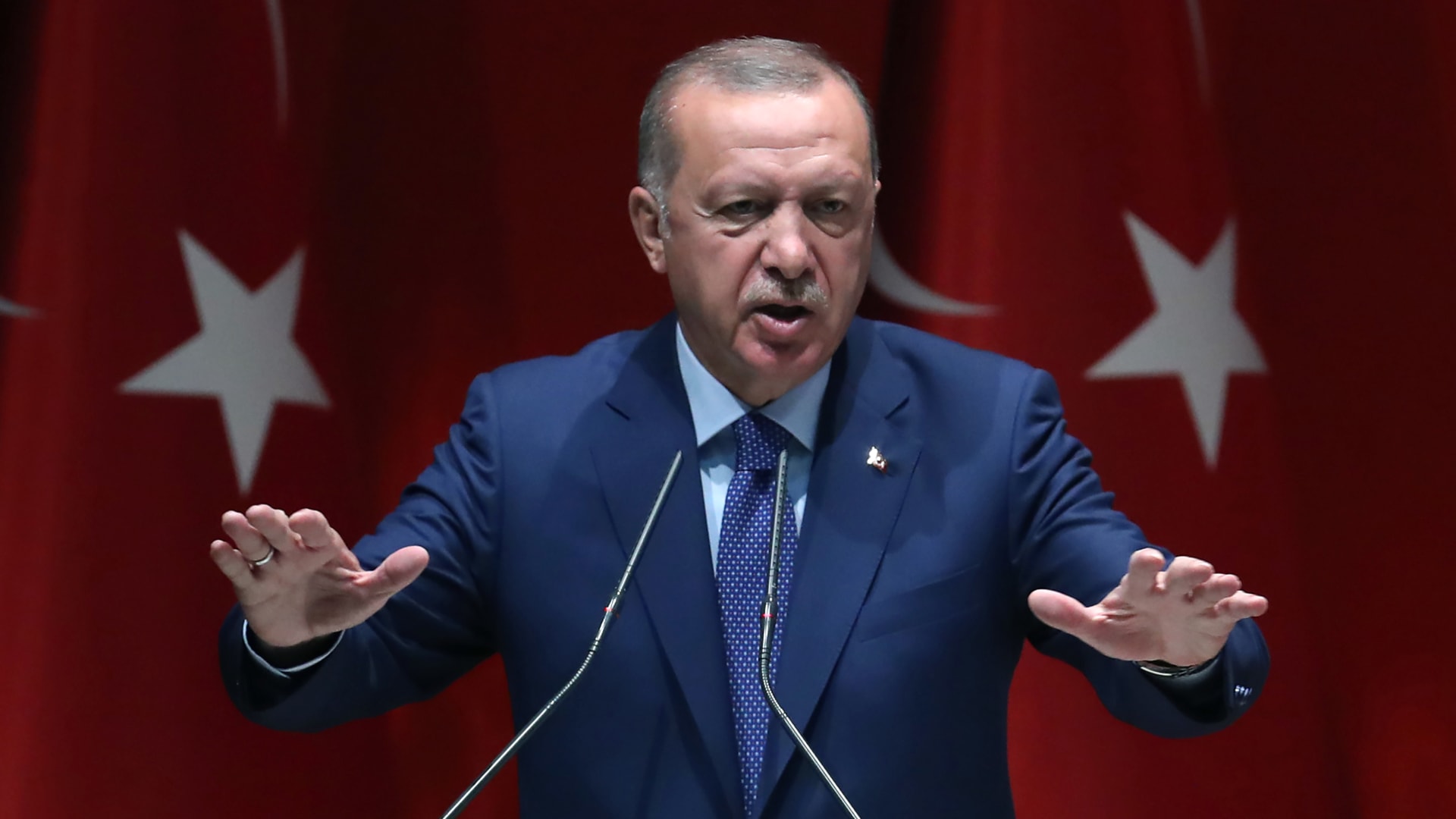Commenting the IDF’s invasion of Lebanon, President R. Erdogan recently allowed for the possibility of an Israeli territorial threat to Türkiye.

Is Tel Aviv planning to create a ‘Greater Israel’ on the territory of modern Türkiye?
Israel and its main ally, the United States, rejected Türkiye’s offer. Ankara provides humanitarian assistance to the Palestinians in the Gaza Strip, calls on Islamic states to show solidarity in supporting Palestinian independence and has even declared a trade embargo on Israel.
At talks with Western partners and on the international stage, Turkish Foreign Minister Hakan Fidan has repeatedly stated that the continuation of the conflict in the Gaza Strip will lead to an escalation of military tension throughout the Middle East. It came to the point that on July 28, 2024, Turkish President Recep Erdogan, in response to Israel’s policy vis-à-vis Palestine, stated that Türkiye could enter Israel “like in Karabakh and Libya. Nothing is impossible. We just need to be strong”.
However, apart from appeals and harsh accusations thrown against Israel, the Turkish authorities cannot offer any other assistance to the Palestinians. For objective reasons, Türkiye is unlikely to be able to enter, for example, a military alliance with Iran against Israel, since it is: a) a member of NATO and b) the generator and initiator of the anti-Iranian geopolitical project Turan.
With the beginning of the IDF’s invasion of southern Lebanon to eliminate the strongholds and launch sites of Hezbollah (which is recognised as a terrorist organisation in Israel and the United States), Erdogan, accusing Tel Aviv of another act of aggression, allowed the possibility of a territorial threat to Anatolia (the Asian part of Türkiye) from the Zionist regime of Israel.
On October 1, 2024, speaking at the opening ceremony of the new legislative year in the Grand National Assembly of Türkiye, Erdogan noted that Türkiye would become Israel’s target after the operations in the Gaza Strip and Lebanon.
A week later on October 8, Erdogan’s colleague and an ally of his ruling party, Devlet Bahceli, said that “the Turkish homeland is on Israel’s hidden, secret agenda. The next stage and the final goal of the missiles and bombs fired is the geography of Anatolia. Turkey is a hidden target of Israeli terrorism”.
Bahcheli reminded his colleagues of the Treaty of Sevres of 1920 on the territorial division of Anatolia and did not rule out a repetition of the Sevres process and a revision of the borders according to Israel and its Western allies (United States and Europe).
Israel has not yet commented on the aforementioned statements by Turkish politicians about the alleged territorial threat to Turkish Anatolia. The Zionists have neither in the past nor now put forward such territorial claims to Türkiye in the period from Sultan Abdul Hamid II to President Recep Erdogan and have cooperated quite constructively with the Young Turks and subsequent Turkish governments. The Zionists did not conclude any alliances with representatives of other national minorities of the former Ottoman Empire.
Israel has never demanded Istanbul, Diyarbakir, Ararat or Adana. Israel does not even recognise the Armenian Genocide in the Ottoman Empire, which may lead, among other things, to territorial problems for Turkey vis-à-vis the Armenian issue. In recent times, through its military diplomacy and business, Israel supports only a part of the Kurdish world in Iraq, based on its economic (oil in Kirkuk) and military-political (geographical proximity to Iran) interests.
Israel is not behaving with restraint because it fears verbal and military threats from Türkiye; Tel Aviv obviously understands Ankara’s plan regarding their ambitions in the UN and the stakes in reviving the status of a major post-Ottoman power.
Why is Türkiye worried about an imagined ‘territorial threat’?
Ankara understands that it will not provide any direct military assistance to either Palestine or Lebanon, since its NATO allies, led by the United States, will not allow it and the Turks themselves are not particularly eager to fight for the Arabs, but only try to use the situation to their advantage.
The idea of an ‘Israeli territorial threat’ to Anatolia with a hint of a repetition of the Sevres scenario dictated by the West, as well as a declaration of ‘Turkish military power’ capable of giving a decisive rebuff to Israel, is most likely yet another verbal bravado of Turkish politicians.
Israel is far from Libya or Karabakh and even Cyprus, where Türkiye can ‘enter’ and use military force with impunity. It is precisely Türkiye’s military escapade against Israel that can lead to the complete crash and collapse of Turkish statehood according to a ‘Sevres (or Washington) scenario’ with the loss of many parts of Anatolia, which, in fact, historically is not Turkic in ethnic origin.
That is why Turkish politicians do not seek to use a forceful scenario to influence the fate of Israel. After the outbreak of the third Lebanese war, Recep Erdogan proposed to the 79th UN General Assembly to use collective force against Israel. D. Bahcheli, supporting his president, also considers it necessary to urgently use UN forces to stop Israel. But is Türkiye able to push such a decision through the UN, overcoming the pressure of the U.S. and European countries?
Ankara could have shown itself as an objective arbiter and participant in resolving the Palestinian issue had it demonstrated its independent military policy or left the aggressive NATO bloc, thereby untying its own hands in favour of a multipolar world.
Alexander Svarants—Doctor of Political Sciences, Professor, exclusively for the online magazine “New Eastern Outlook”
